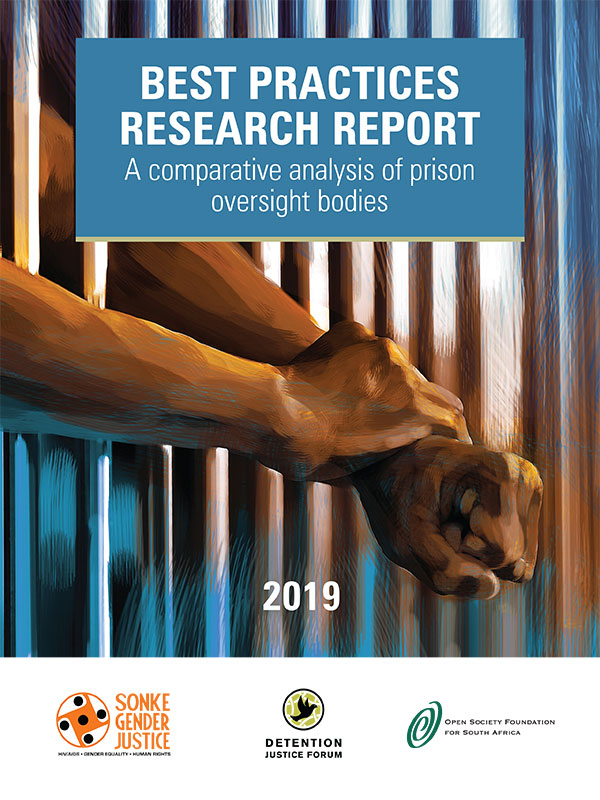- 021 423 7088
- info@genderjustice.org.za
- Whistleblower: 0800 333 059
Consistent and effective prison oversight is a crucial means to ensure the protection and promotion of prisoners’ human rights. Not only does regular monitoring, inspecting and reporting serve to prevent human rights abuses of prisoners, it also ensures transparency and increases the accountability of the government department responsible for overseeing the prisons system.
Prison oversight should be multi-faceted, incorporating a number of functions, not all of which need to be carried out by the same body. These functions include: regulation, auditing, inspection and monitoring, investigation, reporting, legal processes for redress and restitution, and accreditation.
A survey of oversight models within South Africa and in foreign jurisdictions reveals a number of principles of best practice that ought to be considered in the reformation of The Judicial Inspectorate for Correctional Services (JICS). These principles support a number of recommendations as to how the Correctional Services Act should be amended to improve JICS’ efficacy.
This report provides an analysis of the literature on the criteria for effective prison oversight, with the objective of establishing how the ideal prison oversight model (or models) would look. It then examines the prison oversight systems in foreign jurisdictions, and evaluates their efficacy against these criteria. The jurisdictions examined include: Zambia, Malawi, Ghana, India, Canada, California, New York, England and Wales.


Sonke is a South African-based non-profit organisation working throughout Africa. We believe women and men, girls and boys can work together to resist patriarchy, advocate for gender justice and achieve gender transformation.
Please note that Sonke does not offer counselling or other support services to individuals. Click here for information on where to get help.
Sign up for the Sonke e-Newsletter to receive social justice news and views in your inbox.
Please see our Privacy Policy here.